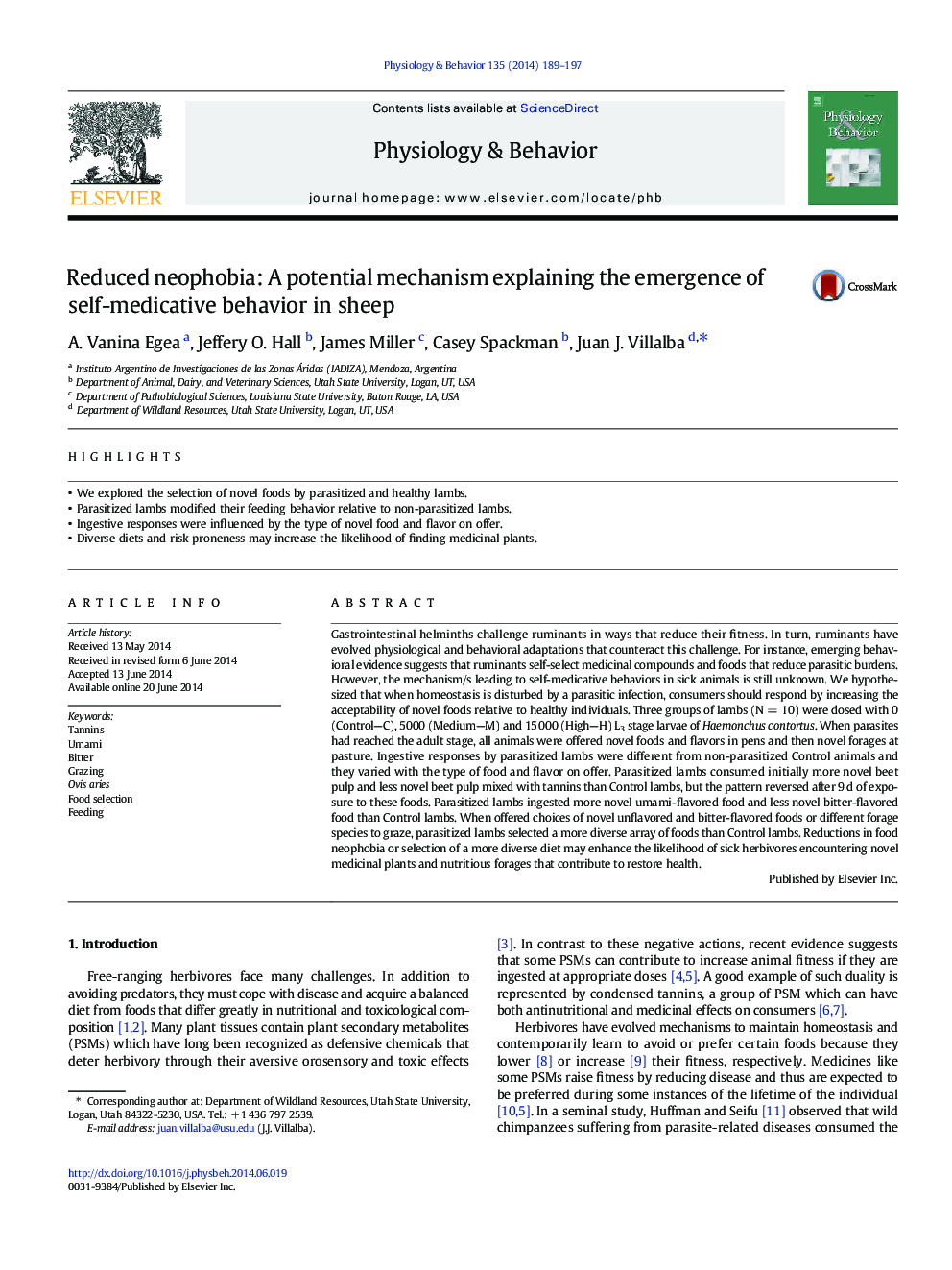| کد مقاله | کد نشریه | سال انتشار | مقاله انگلیسی | نسخه تمام متن |
|---|---|---|---|---|
| 2844261 | 1571182 | 2014 | 9 صفحه PDF | دانلود رایگان |
• We explored the selection of novel foods by parasitized and healthy lambs.
• Parasitized lambs modified their feeding behavior relative to non-parasitized lambs.
• Ingestive responses were influenced by the type of novel food and flavor on offer.
• Diverse diets and risk proneness may increase the likelihood of finding medicinal plants.
Gastrointestinal helminths challenge ruminants in ways that reduce their fitness. In turn, ruminants have evolved physiological and behavioral adaptations that counteract this challenge. For instance, emerging behavioral evidence suggests that ruminants self-select medicinal compounds and foods that reduce parasitic burdens. However, the mechanism/s leading to self-medicative behaviors in sick animals is still unknown. We hypothesized that when homeostasis is disturbed by a parasitic infection, consumers should respond by increasing the acceptability of novel foods relative to healthy individuals. Three groups of lambs (N = 10) were dosed with 0 (Control—C), 5000 (Medium—M) and 15 000 (High—H) L3 stage larvae of Haemonchus contortus. When parasites had reached the adult stage, all animals were offered novel foods and flavors in pens and then novel forages at pasture. Ingestive responses by parasitized lambs were different from non-parasitized Control animals and they varied with the type of food and flavor on offer. Parasitized lambs consumed initially more novel beet pulp and less novel beet pulp mixed with tannins than Control lambs, but the pattern reversed after 9 d of exposure to these foods. Parasitized lambs ingested more novel umami-flavored food and less novel bitter-flavored food than Control lambs. When offered choices of novel unflavored and bitter-flavored foods or different forage species to graze, parasitized lambs selected a more diverse array of foods than Control lambs. Reductions in food neophobia or selection of a more diverse diet may enhance the likelihood of sick herbivores encountering novel medicinal plants and nutritious forages that contribute to restore health.
Journal: Physiology & Behavior - Volume 135, August 2014, Pages 189–197
